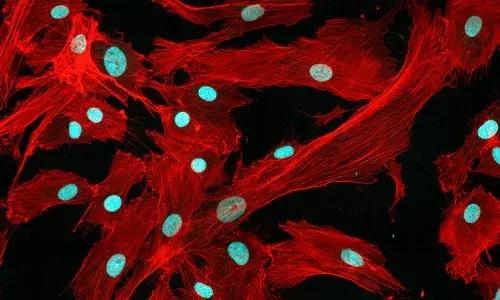The mesenchymal stem cells (MSCs) landscape is influenced by various market drivers that shape its growth and evolution. Here are some key drivers driving the MSCs market:
Increasing Prevalence of Chronic Diseases: The rising incidence of chronic diseases such as osteoarthritis, cardiovascular diseases, neurological disorders, and autoimmune diseases creates a significant demand for innovative therapies. MSC-based treatments offer potential solutions for addressing unmet medical needs in these patient populations.
Aging Population: The global demographic shift towards an aging population contributes to the growing burden of age-related conditions and degenerative diseases. MSC-based therapies hold promise for regenerative medicine applications, including tissue repair and regeneration, which are particularly relevant in aging populations.
Advancements in Stem Cell Research: Ongoing advancements in stem cell research, including the elucidation of MSC biology, differentiation pathways, and immunomodulatory properties, drive innovation in the development of MSC-based therapies. Enhanced understanding of stem cell biology enables the optimization of manufacturing processes and therapeutic applications.
Global Industry Analysis, Size, Share, Growth, Trends, and Forecast 2023-2032 – By Product Type, Application, End-user, and Region: (North America, Europe, Asia Pacific, Latin America and Middle East and Africa): https://www.persistencemarketresearch.com/market-research/mesenchymal-stem-cells-market.asp
Regenerative Medicine Potential: MSCs possess unique regenerative and immunomodulatory properties that make them attractive candidates for regenerative medicine applications. These cells can differentiate into various cell types and exert paracrine effects, promoting tissue repair, modulating inflammation, and regulating immune responses.
Rapid Technological Progress: Technological advancements in cell culture techniques, bioprocessing, and gene editing technologies enhance the scalability, efficiency, and safety of MSC manufacturing. Innovations such as three-dimensional (3D) bioprinting and microfluidic systems enable the generation of complex tissue constructs and facilitate the translation of MSC research into clinical applications.
Clinical Success and Regulatory Support: Positive clinical outcomes from early-phase and late-phase trials validate the safety and efficacy of MSC-based therapies for diverse indications. Regulatory agencies worldwide are providing clearer pathways for the development and approval of regenerative medicine products, encouraging investment and innovation in the MSCs market.
Growing Investment and Funding: Increasing investment from venture capital firms, pharmaceutical companies, and government agencies fuels research and development efforts in the MSCs field. Funding supports preclinical studies, clinical trials, manufacturing infrastructure, and commercialization initiatives, driving market growth and expansion.
Emerging Applications in Cell Therapy and Immunotherapy: MSCs are being explored as cellular therapeutics and immunomodulatory agents in cell-based therapies and immunotherapy approaches. Engineered MSCs with enhanced therapeutic properties, such as improved homing, engraftment, and persistence, hold promise for the treatment of cancer, graft-versus-host disease (GVHD), and other immune-related disorders.
Global Collaborations and Partnerships: Collaboration between academia, industry, and healthcare institutions facilitates knowledge exchange, resource sharing, and technology transfer, accelerating the translation of scientific discoveries into clinical applications. Partnerships also drive the development of standardized protocols, quality control measures, and regulatory strategies for MSC-based therapies.
Patient-Centric Healthcare Trends: Patient demand for personalized, minimally invasive, and effective treatment options drives the adoption of regenerative medicine approaches, including MSC-based therapies. Patient advocacy groups, awareness campaigns, and educational initiatives play a crucial role in fostering understanding and acceptance of MSC-based treatments among patients and healthcare providers.
These market drivers collectively contribute to the dynamic growth and evolution of the MSCs landscape, positioning mesenchymal stem cells as promising candidates for addressing diverse medical challenges and advancing regenerative medicine.
About Persistence Market Research:
Business intelligence is the foundation of every business model employed by Persistence Market Research. Multi-dimensional sources are being put to work, which include big data, customer experience analytics, and real-time data collection. Thus, working on “micros” by Persistence Market Research helps companies overcome their “macro” business challenges.
Persistence Market Research is always way ahead of its time. In other words, it tables market solutions by stepping into the companies’/clients’ shoes much before they themselves have a sneak pick into the market. The pro-active approach followed by experts at Persistence Market Research helps companies/clients lay their hands on techno-commercial insights beforehand, so that the subsequent course of action could be simplified on their part.
Contact
Persistence Market Research
Teerth Techno space, Unit B-704
Survey Number - 103, Baner
Mumbai Bangalore Highway
Pune 411045 India
Email: sales@persistencemarketresearch.com
Web: https://www.persistencemarketresearch.com
